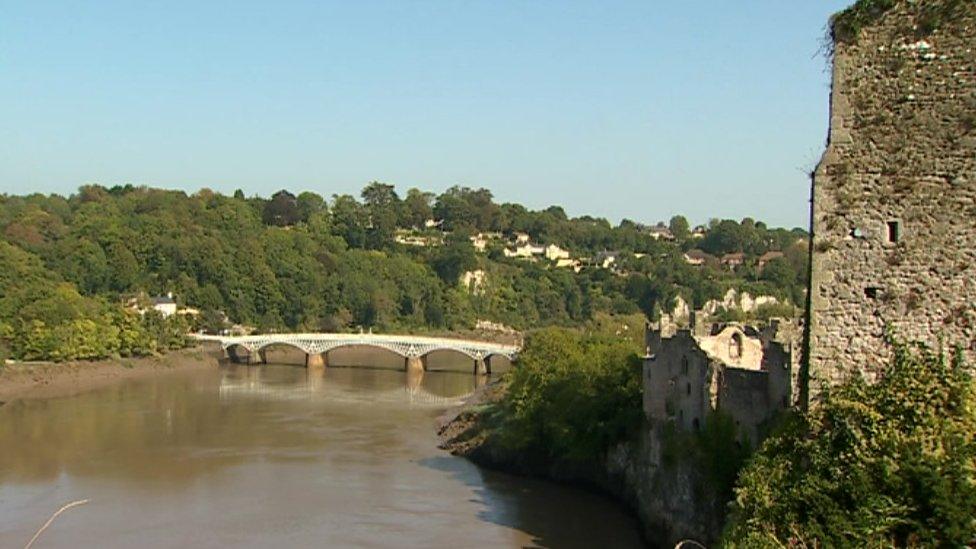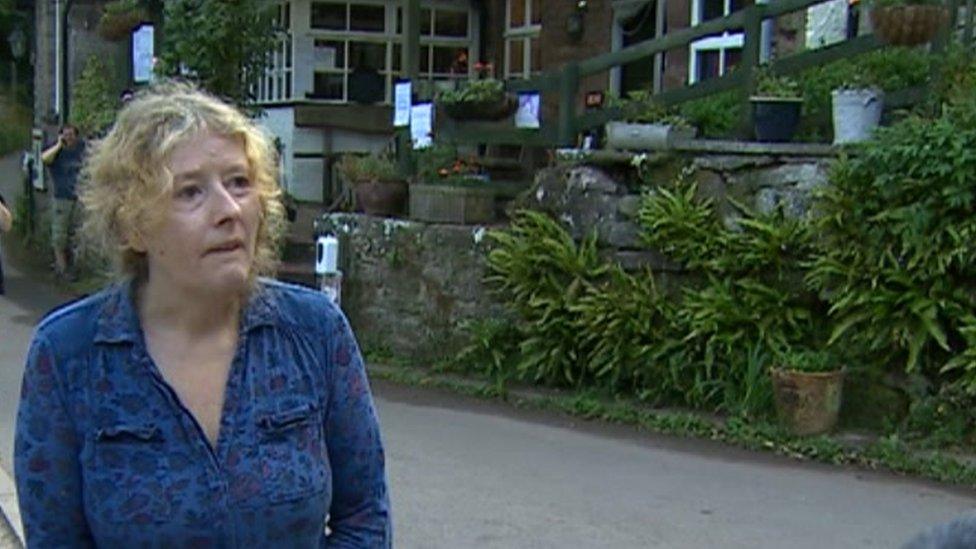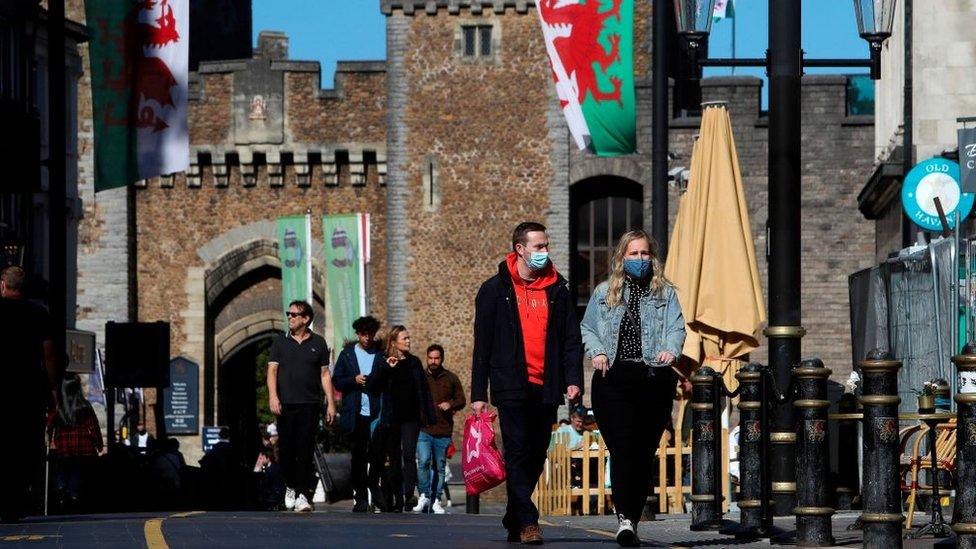Covid pandemic highlights Wales' devolved politics
- Published

A footbridge links Wales and England on a stretch of the River Wye in Monmouthshire
The most obvious impact of the Covid-19 pandemic on Welsh politics can be seen at the 160-mile border between Wales and England.
It's porous and it's populous - about 16 million people live within 50 miles of it.
Before covid, there were 2.6 million journeys across it every week, on average.
The busy interactions of border life could easily disguise the fact that for the past 20 years, Welsh governments have pursued different policies to England on things such as schools and health.
The pandemic brought that reality home like nothing else and people like Deborah Burch have found themselves on the front line.
Deborah runs The Boat Inn in Penallt, which has nestled into the banks of the River Wye for centuries.
The Boat is also right on the border where a footbridge over the river provides a two-minute walk into England.
So Deborah's found herself doing a lot of explaining that covid rules are different in Wales.
"We get information from the council so we're luckier than the customers because we sort of know what's going on, but it's quite hard to relay all that to the people that are coming."
She says the pub is so close to England that customers "don't know they're in Wales half the time, so it does get complicated".

Border pub boss Deborah Burch says Covid-19 has raised customers' awareness of devolution
After the months of a national lockdown, Deborah says covid has raised her customers' awareness of devolution on both sides of the border.
"I think possibly before people didn't realise there were two governments. I think everybody's a bit more politically aware now."
Her staff and customers agree.
I spoke to an English couple on a walking holiday in the Wye valley who'd stopped to enjoy the scenery with a glass of wine.
"We went to north Wales earlier on in the year and everything was shut, which came as a bit of shock," they say.
"We knew about devolution, but we didn't realise it made things so different."

Pub staff Tom and Elisha have also found themselves explaining Covid policy differences on either side of the border
Elisha and Tom work at The Boat. They've found themselves serving up explanations of devolution along with pints and pub lunches.
Neither of them were old enough to vote in the last set of Welsh Parliament elections, but next year they will be.
Has the pandemic made a difference to their intention to vote?
"This has made me more likely to vote, yeah," says Tom.
"It's kind of shown there are some slight differences and if voting makes an impact on that, I am more likely to vote in them."
Elisha tells me she was always planning to vote next year, but the rules "have been quite different at times so it's definitely made things a bit clearer".
So if the pandemic has led to an increased awareness of devolution, does that mean turnout will be higher in the elections to the Welsh Parliament next year?
Up to now, turnout in Senedd elections has never breached the 50% mark.

Prof Laura McAllister: "Polling suggests the three big parties all look like they could get a substantial chunk of seats"
Laura McAllister, professor of governance at Cardiff University, warns against making assumptions.
"There are no guarantees. Knowledge doesn't necessarily mean interest and engagement," she says.
"There are other factors that affect turnout, like whether there is a real sense that there will be competition in that election.
"Polling suggests the three big parties all look like they could get a substantial chunk of seats, which poses really interesting questions about what kind of government we will have.
"And if that forms the conversation in the months leading up the elections, people will think 'my vote will make a difference'."
While we're still in the middle of the covid pandemic, it's hard to draw concrete conclusions about how it's shaping Welsh politics.
So much remains uncertain, including exactly how next May's elections might be conducted if covid rules are still in place.
But the voters will, as they always do, provide us with some answers.
- Published28 September 2020

- Published27 September 2020
